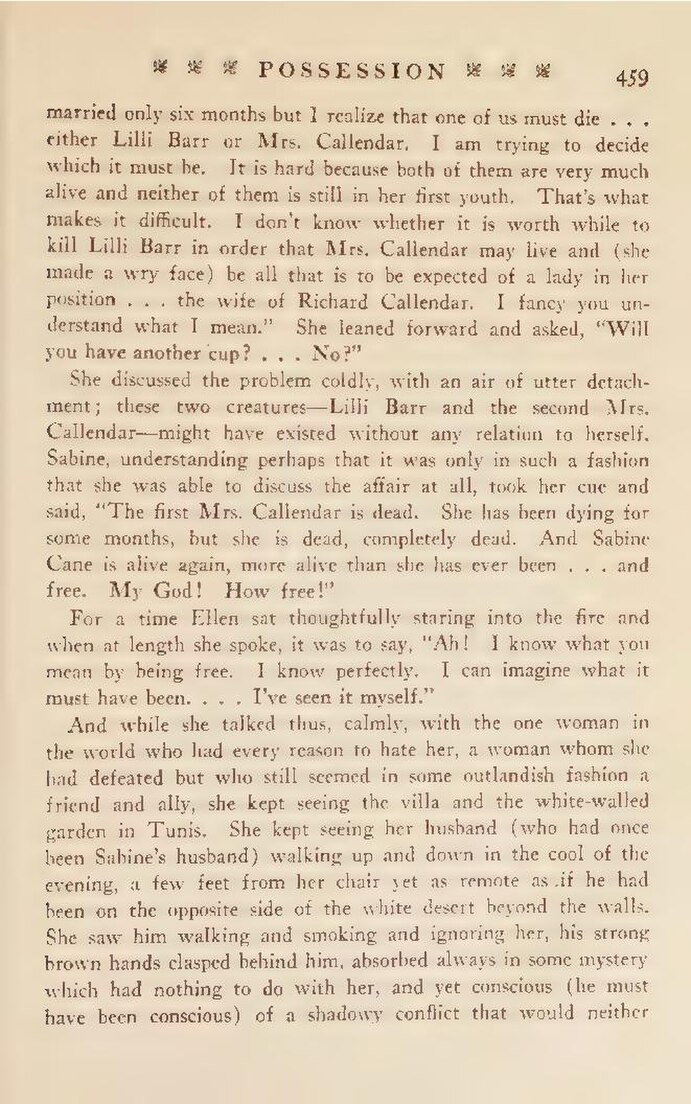married only six months but I realize that one of us must die . . . either Lilli Barr or Mrs. Callendar. I am trying to decide which it must be. It is hard because both of them are very much alive and neither of them is still in her first youth. That's what makes it difficult. I don't know whether it is worth while to kill Lilli Barr in order that Mrs. Callendar may live and (she made a wry face) be all that is to be expected of a lady in her position . . . the wife of Richard Callendar. I fancy you understand what I mean." She leaned forward and asked, "Will you have another cup? . . . No?"
She discussed the problem coldly, with an air of utter detachment; these two creatures—Lilli Barr and the second Mrs. Callendar—might have existed without any relation to herself. Sabine, understanding perhaps that it was only in such a fashion that she was able to discuss the affair at all, took her cue and said, "The first Mrs. Callendar is dead. She has been dying for some months, but she is dead, completely dead. And Sabine Cane is alive again, more alive than she has ever been . . . and free. My God! How free!"
For a time Ellen sat thoughtfully staring into the fire and when at length she spoke, it was to say, "Ah! I know what you mean by being free. I know perfectly. I can imagine what it must have been. . . . I've seen it myself."
And while she talked thus, calmly, with the one woman in the world who had every reason to hate her, a woman whom she had defeated but who still seemed in some outlandish fashion a friend and ally, she kept seeing the villa and the white-walled garden in Tunis. She kept seeing her husband (who had once been Sabine's husband) walking up and down in the cool of the evening, a few feet from her chair yet as remote as if he had been on the opposite side of the white desert beyond the walls. She saw him walking and smoking and ignoring her, his strong brown hands clasped behind him, absorbed always in some mystery which had nothing to do with her, and yet conscious (he must have been conscious) of a shadowy conflict that would neither
